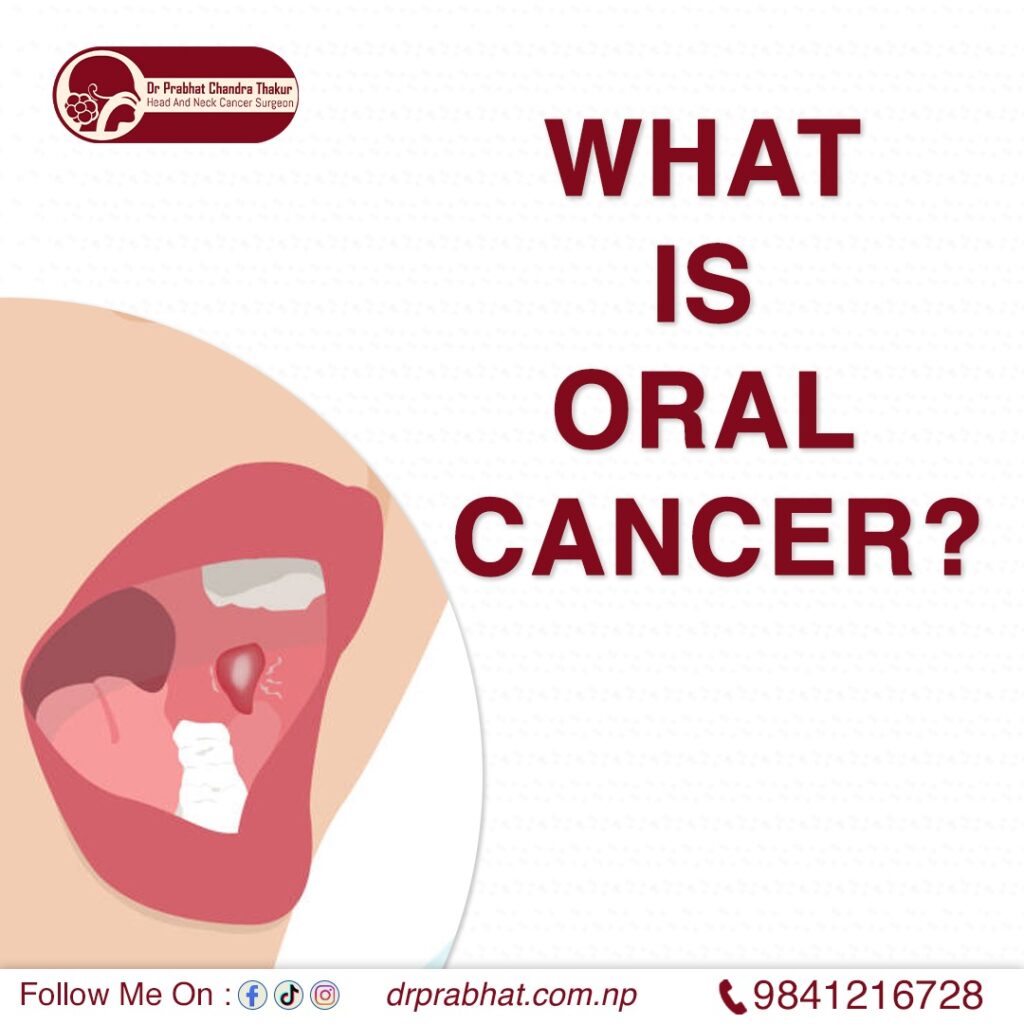Table of Contents
ToggleIntroduction
My name is Dr. Prabhat Chandra Thakur, an oral cancer surgeon specializing in head and neck oncology in Nepal. This journey, rooted in a profound commitment to healing and hope, has been both challenging and rewarding. As an experienced head and neck cancer surgeon, I aim to share insights into my career and experiences.
Educational Foundation and Early Career
My medical journey began at B.P. Koirala Institute of Health Sciences, Dharan, where I earned my MBBS degree. Further specialization in Otolaryngology-Head & Neck Surgery at PGI Chandigarh, India, laid the foundation for my expertise. My skills were further refined through fellowships at the International Federation of Head & Neck Oncology Society (IFHNOS) and Memorial Sloan Kettering Cancer Center in New York, along with training in Minimal Invasive Thyroid Surgery in Bangkok.
Professional Milestones
Joining Nepal Cancer Hospital & Research Center, Harisiddhi, Lalitpur, marked a significant milestone in my career. Here, I have had the privilege of working with a dedicated multidisciplinary team. Each patient’s journey is unique, demanding a blend of surgical precision, emotional understanding, and compassionate care, essential traits for an oral cancer surgeon and head and neck cancer surgeon.
Complex Cases and Technological Advancements
Oral cancer surgeries are intricate, often involving structures critical to speech, swallowing, and appearance. A notable case involved a patient with advanced mouth cancer requiring extensive reconstruction. The successful outcome was a testament to the power of meticulous planning and teamwork. Incorporating advanced technologies, such as endoscopic skull base surgery and remote access endoscopic thyroid surgery, has revolutionized our approach, enhancing patient outcomes and recovery times.
Patient-Centered Approach
Central to my practice is a patient-centered approach, emphasizing trust, empathy, and personalized care. A memorable experience involved an 89-year-old patient, Mrs. Jayanti Thapa, whose successful surgery and recovery highlighted the resilience of the human spirit and the importance of individualized care. As an oral cancer surgeon, building strong doctor-patient relationships is crucial.
Community Outreach and Education
Beyond clinical practice, community outreach and education play a pivotal role. Conducting workshops, seminars, and awareness programs about oral cancer prevention, particularly the risks associated with tobacco use and the importance of early detection, is crucial. Empowering the community with knowledge is a key aspect of reducing the incidence of mouth cancer.
Oral Cancer Symptoms
Recognizing oral cancer symptoms early can significantly impact the outcome. Common symptoms include:
- Persistent sores or ulcers in the mouth that do not heal.
- Unexplained bleeding in the mouth.
- Red or white patches on the gums, tongue, or lining of the mouth.
- Lumps or thickening in the cheek.
- Difficulty chewing, swallowing, or moving the tongue or jaw.
- Numbness in the tongue or other areas of the mouth.
- Chronic sore throat or hoarseness.
Can You Fully Recover from Oral Cancer?
Yes, full recovery from oral cancer is possible, especially when detected early and treated promptly. The prognosis depends on the stage at diagnosis, the location of the cancer, and the patient’s overall health. Advances in surgical techniques, radiation therapy, and chemotherapy have significantly improved survival rates and quality of life for oral cancer patients.
Main Cause of Oral Cancer

The primary cause of oral cancer is the use of tobacco, including smoking and chewing tobacco. Excessive alcohol consumption, a combination of tobacco and alcohol use, prolonged exposure to the sun (for lip cancer), and human papillomavirus (HPV) infection are also significant risk factors.
How Long Can a Person Live with Mouth Cancer?
The survival rate for mouth cancer varies based on several factors, including the cancer stage at diagnosis and the patient’s overall health. On average, the five-year survival rate for localized oral cancer is around 80%, but it drops to about 30% for cancers that have spread to distant parts of the body. Early detection and treatment are crucial for improving survival rates.
Conclusion
Reflecting on my journey as an oral cancer surgeon and head and neck cancer surgeon, I am reminded of the countless lives touched and the hope restored. The field of oncology is constantly evolving, presenting new challenges and opportunities. My commitment to excellence, innovation, and continuous learning drives my dedication to improving patient outcomes. As I continue this journey, I remain focused on making a positive impact in the lives of those affected by mouth cancer in Nepal, one surgery at a time.
